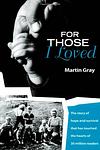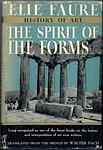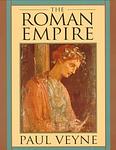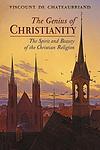The Greatest Italian, French "History" Books of All Time
Click to learn how this list is calculated.
This list represents a comprehensive and trusted collection of the greatest books. Developed through a specialized algorithm, it brings together 305 'best of' book lists to form a definitive guide to the world's most acclaimed books. For those interested in how these books are chosen, additional details can be found on the rankings page.
Genres
The category of "History" in books refers to the study and interpretation of past events, societies, and cultures. It encompasses a wide range of topics, including political, social, economic, and cultural developments, as well as the lives of individuals and groups who have shaped the course of history. History books can be written from various perspectives and may focus on specific time periods, regions, or themes. They aim to provide readers with a deeper understanding of the past and its impact on the present.
Countries
Date Range
Reading Statistics
Click the button below to see how many of these books you've read!
Download
If you're interested in downloading this list as a CSV file for use in a spreadsheet application, you can easily do so by clicking the button below. Please note that to ensure a manageable file size and faster download, the CSV will include details for only the first 500 books.
Download-
26. Histoire De L'afrique Noire by Joseph Ki-Zerbo
"Histoire De L'afrique Noire" is a comprehensive exploration of the history of Black Africa, written by Joseph Ki-Zerbo. The book delves into the origins of African civilizations, the impact of colonization, and the struggle for independence. Ki-Zerbo analyzes various aspects of African history, including political, economic, and social developments, highlighting the contributions of African leaders and the challenges faced by the continent. This informative and engaging work provides a valuable resource for anyone seeking a deeper understanding of the rich and complex history of Black Africa.
The 3802nd Greatest Book of All Time -
27. Soundjata Ou L'épopée Mandingue by Djibril Tamsir Niane
"Soundjata Ou L'épopée Mandingue" is a historical novel that tells the captivating story of Soundjata Keita, the legendary founder of the Mali Empire. Set in 13th-century West Africa, the book follows Soundjata's journey from a crippled and exiled prince to a powerful warrior king. Through battles, alliances, and encounters with mystical beings, Soundjata's determination and leadership skills are tested as he strives to unite the Mandinka people and reclaim his rightful throne. This epic tale explores themes of courage, destiny, and the enduring power of legends.
The 3802nd Greatest Book of All Time -
28. Memoirs by Raymond Aron
The book in question is an intellectual autobiography by a prominent French philosopher and sociologist, chronicling his life from his early years through the tumultuous events of the 20th century. It delves into his experiences during World War II, his observations on the Cold War, and his relationships with other notable intellectuals of his time. The author reflects on his philosophical and political evolution, offering insights into his analytical approach to history, politics, and society. His memoirs serve as a window into the mind of a thinker deeply engaged with the ideological and historical challenges of his era, providing a personal perspective on the broader intellectual currents that shaped the modern world.
The 4129th Greatest Book of All Time -
29. Chronicles by Jean Froissart
The book in question is a historical narrative that provides a detailed account of the events, politics, and warfare of the 14th century, particularly focusing on the Hundred Years' War between England and France. The author, a medieval French chronicler, compiled extensive anecdotes, interviews, and reports, offering readers a vivid portrayal of the chivalric age, the lives of nobility, the impact of battles, and the social and political dynamics of the time. His work is considered one of the most important primary sources for the period it covers, offering a blend of factual history and the author's own interpretations and biases, reflecting the complex tapestry of medieval European society.
The 4162nd Greatest Book of All Time -
30. The Spirit Of The Laws by Montesquieu
"The Spirit of the Laws" is a foundational text in the fields of political theory and sociology, which analyzes the factors that drive the laws and rules governing different types of governments. The author explores how laws are shaped by the nature and principle of each government type, such as republics, monarchies, and despotisms, as well as by the climate, geography, economy, and customs of the region. This work is particularly renowned for articulating the theory of separation of powers, a concept that has deeply influenced modern democratic systems by advocating for dividing governmental power among separate branches to prevent any one branch from becoming too dominant.
The 4699th Greatest Book of All Time -
31. Fantasia: An Algerian Cavalcade by Assia Djebar
"Fantasia: An Algerian Cavalcade" is a multifaceted novel that intertwines personal narratives with the history of Algeria's resistance against French colonialism. Through a blend of autobiography, historical documentation, and fictional reimaginings, the book explores the complex layers of identity, memory, and struggle from the perspective of Algerian women. The narrative shifts across time, recounting both the 19th-century French invasion and the 20th-century war for independence, while delving into the author's own experiences and the broader cultural and linguistic challenges faced by Algerian society. The novel stands out for its poetic style and its innovative use of language to capture the voices of those often silenced in historical discourse.
The 4928th Greatest Book of All Time -
32. For Those I Loved by Martin Gray
The book is a harrowing memoir of survival and resilience, chronicling the author's experiences during the Holocaust. As a young Jewish boy in Poland, he witnesses the brutal murder of his family by the Nazis and endures the horrors of the Warsaw Ghetto and Treblinka extermination camp. Against all odds, he manages to escape and join the resistance, fighting for freedom and justice. After the war, he rebuilds his life, only to face tragedy again when his wife and children are killed in a fire. The narrative is a testament to the human spirit's capacity to endure and find meaning in the face of unimaginable suffering.
The 5271st Greatest Book of All Time -
33. The Voices Of Silence by Andre Malraux
"The Voices of Silence" is a profound exploration of the psychology, philosophy, and history of art and aesthetics. The work delves into the relationship between art and the human condition, examining how art has evolved and how it reflects the spiritual and intellectual developments of different cultures. It discusses the role of the artist in society and the transformative power of art, considering the ways in which art communicates beyond language and the silence of eternity. The book is both a meditation on the nature of artistic creation and a sweeping survey of world art, from the prehistoric to the modern era, offering insights into the enduring quest for meaning and beauty through artistic expression.
The 5297th Greatest Book of All Time -
34. The Book Of The Courtier by Baldassare Castiglione
This Renaissance classic is a seminal work on etiquette and courtly manners, presenting an idealized vision of the perfect gentleman and lady at the courts of Italy. Through a series of dialogues set over four evenings, the book explores the attributes of a well-rounded courtier, emphasizing skills such as martial arts, physical grace, and intellectual pursuits, alongside the importance of moral virtue and the art of conversation. The text also delves into the complex interplay of love, the role of women in court, and the philosophical underpinnings of what it means to live a noble life, ultimately providing a guide to the refined behavior expected in aristocratic circles of the time.
The 5297th Greatest Book of All Time -
35. The Coming Of The French Revolution by Georges Lefebvre
"The Coming of the French Revolution" provides a detailed analysis of the social, political, and economic factors that led to the French Revolution in 1789. The book examines the roles played by various classes of society, including the peasantry, bourgeoisie, and nobility, and highlights the escalating tensions that culminated in a profound transformation of the French state. The author uses a Marxist perspective to explore the class struggles and the rise of revolutionary ideas, illustrating how these elements combined to overthrow the old regime and set the stage for modern political changes.
The 5535th Greatest Book of All Time -
36. Feudal Society by Marc Bloch
"Feudal Society" is a comprehensive historical analysis that delves into the social, economic, and political structures of medieval Europe. The book explores the intricate system of feudalism, where society was hierarchically divided between kings, nobles, knights, and serfs, each bound by mutual obligations and duties. Through a detailed examination of legal documents, personal accounts, and other historical sources, the work illuminates how these relationships shaped European society from the ninth to the fifteenth century, influencing everything from land tenure and military service to legal jurisdiction and social norms. The study not only provides insights into the feudal system itself but also reflects on its long-term impacts on European history.
The 5535th Greatest Book of All Time -
37. History Of Art by Elie Faure
"History of Art" is a comprehensive exploration of the evolution of art across different civilizations and epochs, tracing the development of artistic expression from ancient times to the modern era. The book delves into the cultural, social, and historical contexts that shaped various art forms and movements, offering insights into the techniques, themes, and aesthetic values of different periods. Through a detailed examination of significant artworks and figures, the narrative highlights the continuous influence of past traditions on contemporary art, emphasizing the universal and enduring nature of human creativity.
The 5535th Greatest Book of All Time -
38. How Democracies Perish by Jean François Revel
This book provides a deep analysis of the threats faced by democracies, specifically from totalitarian regimes. The author argues that democracies are often their own worst enemies, being too tolerant and indecisive, which can lead to their downfall. He further discusses how democracies can be manipulated by totalitarian regimes through propaganda and misinformation. The book serves as a warning and a call to action for democratic societies to recognize these threats and take steps to defend their values and institutions.
The 5645th Greatest Book of All Time -
39. The Roman Empire by Paul Veyne
"The Roman Empire" delves into the intricate and expansive history of Rome, exploring its political, social, and cultural dynamics. The book provides a detailed examination of how Rome evolved from a small city-state to a vast empire, influencing the Western world profoundly. The author analyzes the mechanisms of power and governance within the empire, the role of military conquests and political alliances, and the complex interactions between Roman and other cultures. Additionally, the narrative discusses the daily lives of Roman citizens, the economic frameworks, and the philosophical and artistic contributions that shaped the legacy of the Roman Empire.
The 5681st Greatest Book of All Time -
40. Montaillou by Emmanuel Le Roy Ladurie
The book is a detailed historical study of the lives of the inhabitants of Montaillou, a small village in the French Pyrenees, during the early 14th century. Based on the meticulous records of Jacques Fournier, the Bishop of Pamiers who later became Pope Benedict XII, the book explores the daily lives, beliefs, and social structures of a medieval community. It particularly focuses on how the villagers, including peasants and shepherds, interacted with the Cathar heresy and the Inquisition's efforts to suppress it. The work provides an in-depth look at medieval European rural life, religious practices, and the impact of ecclesiastical authority on individual lives.
The 5681st Greatest Book of All Time -
41. The History Of Sexuality by Michel Foucault
"The History of Sexuality" explores the complex relationship between power and sexual discourse, arguing that since the 17th century, Western societies have not repressed sexuality but rather incited it, making it an object of public discourse. The author examines how power operates through the production of knowledge about sex and uses this perspective to challenge the conventional narrative that society has been progressively liberating sexuality from repression. The book delves into the ways in which sexual norms and power relations are intertwined, suggesting that the discourse on sexuality is a tool of power used to regulate both individual bodies and entire populations.
The 5734th Greatest Book of All Time -
42. Cinema And History by Marc Ferro
"Cinema and History" explores the intricate relationship between cinema and historical events, analyzing how films reflect and shape public perceptions of history. The book delves into the ways filmmakers from various cultures and periods have portrayed historical figures and incidents, highlighting the influence of political, social, and cultural contexts on these depictions. It also examines the role of propaganda, the impact of historical films on collective memory, and the differences between cinematic and historical narratives. Through a critical lens, the author discusses the potential of cinema to both distort historical truth and provide profound insights into historical realities.
The 5825th Greatest Book of All Time -
43. The Hour Of Our Death by Philippe Ariès
"The Hour of Our Death" delves into the profound and evolving relationship between humanity and death from the early Middle Ages to the present. The book presents a detailed historical analysis of attitudes toward death, revealing how cultural, social, and religious elements have shaped human responses to mortality. It explores the rituals of dying and the customs of mourning, highlighting the transition from a familiar acceptance of death's constant presence in daily life to its modern sequestration and medicalization, which has altered but not diminished its profound impact on the human psyche and society.
The 6143rd Greatest Book of All Time -
44. Leo Africanus by Amin Maalouf
This historical novel follows the life of a real-life Andalusian-born traveler of the 16th century, who is captured by Christian pirates and presented as a gift to the Pope. Renamed after the pontiff, he becomes a respected scholar and diplomat, navigating the complex cultural and religious divides of the Mediterranean world. Throughout his journeys, which take him from his birthplace in Granada to Fez, Timbuktu, Constantinople, and Rome, he witnesses the tumultuous events of his time, including the fall of Granada and the rise of the Ottoman Empire. His story is one of identity, belonging, and the universal quest for knowledge and understanding amidst a backdrop of conflict and change.
The 6182nd Greatest Book of All Time -
45. The Buddha And His Religion by J. Barthelemy Saint-Hilaire
"The Buddha and His Religion" offers a comprehensive exploration of the life and teachings of Siddhartha Gautama, known as the Buddha, and the subsequent development of Buddhism. The book delves into the historical and cultural contexts of ancient India that shaped and were shaped by Buddhist philosophy. It examines the core principles of Buddhism, including the Four Noble Truths and the Eightfold Path, and discusses the spread and adaptation of Buddhism in various regions. Additionally, the text analyzes the organizational structure of the Buddhist community, the role of monks and laity, and the evolution of Buddhist thought and practice over time.
The 6768th Greatest Book of All Time -
46. La Charte Du Mandé Et Autres Traditions Du Mali by Aboubakar Fofana, Jean-Louis Sagot
"La Charte Du Mandé Et Autres Traditions Du Mali" is a comprehensive exploration of the rich historical and cultural heritage of Mali, focusing on the ancient Mandé Charter, also known as the Manden Charter. This seminal text delves into the origins and implications of this 13th-century document, which is one of the earliest forms of human rights charters. The book not only examines the charter's principles of social justice, equality, and political ethics but also contextualizes it within a broader spectrum of Malian traditions, shedding light on the country's profound historical narratives and the enduring cultural practices that continue to shape its identity.
The 6969th Greatest Book of All Time -
47. The Mystery Of The Charity Of Joan Of Arc by Charles Péguy
The book in question is a lyrical and philosophical meditation on the life and legacy of Joan of Arc, focusing particularly on her acts of charity and humility. Through a blend of poetry and prose, the narrative delves into the spiritual and moral dimensions of Joan's character, exploring the paradoxes of her saintliness and her role as a warrior. The work reflects on the nature of faith, the virtue of charity, and the profound impact Joan of Arc has had on French national identity and Catholic spirituality. It is a contemplative homage to a historical figure that transcends the boundaries of time, inviting readers to ponder the deeper meanings of heroism and sanctity.
The 7193rd Greatest Book of All Time -
48. The Wine Dark Sea by Leonardo Sciascia
In "The Wine Dark Sea," readers are presented with a collection of short stories that delve into the complexities of Sicilian life, exploring themes of justice, truth, and the human condition. The narrative weaves through tales of ordinary people confronted with extraordinary situations, often involving crime and moral dilemmas. The author's sharp observations and subtle irony highlight the intricate relationship between the individual and the often-oppressive societal structures, painting a vivid picture of a land steeped in beauty and contradiction, where the line between right and wrong is as blurred as the horizon on the titular wine-dark sea.
The 7193rd Greatest Book of All Time -
49. The Genius Of Christianity by François-Auguste-René de Chateaubriand
The book is a comprehensive defense and celebration of the Christian faith, arguing that Christianity is not only a source of moral and spiritual guidance but also a driving force for cultural and artistic excellence. The author presents Christianity as the foundation of Western civilization, attributing to it the genius behind its laws, customs, and institutions. He explores the religion's influence on literature, fine arts, and societal values, suggesting that the beauty and sublimity found in Christian doctrine, rituals, and symbolism have profoundly shaped human creativity and sentiment. The work serves as both an apologetic treatise and a romantic homage to the aesthetic and cultural contributions of Christianity throughout history.
The 7193rd Greatest Book of All Time -
50. On The Historical Novel by Alessandro Manzoni
The book in question is a critical examination of the historical novel as a literary genre, exploring the challenges and responsibilities of blending historical facts with fictional narrative. The author delves into the intricacies of accurately representing historical events and characters while crafting a compelling story that remains true to the era it depicts. Through a series of essays, the work discusses the importance of historical context, the role of the author's perspective, and the balance between didacticism and entertainment in creating novels that not only depict the past but also resonate with contemporary readers. The text serves as both a guide for writers of historical fiction and a critique of the genre, offering insights into the ethical and artistic considerations involved in writing about history.
The 7193rd Greatest Book of All Time
Reading Statistics
Click the button below to see how many of these books you've read!
Download
If you're interested in downloading this list as a CSV file for use in a spreadsheet application, you can easily do so by clicking the button below. Please note that to ensure a manageable file size and faster download, the CSV will include details for only the first 500 books.
Download






















